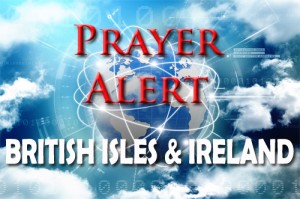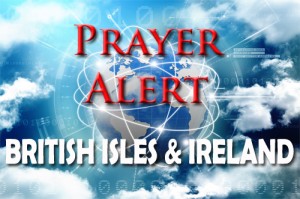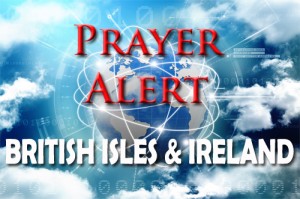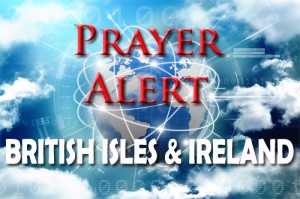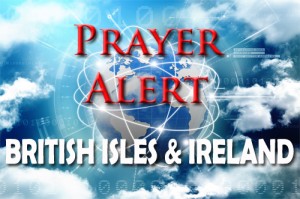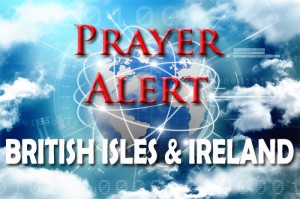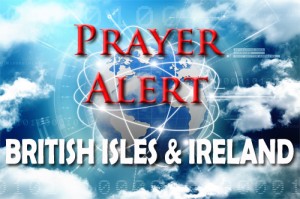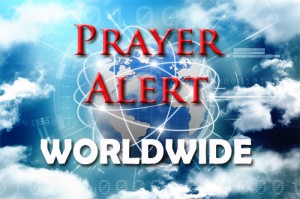
David Fletcher
David Fletcher is Prayer Alert’s Editor.
He is part of a voluntary team who research, proof-read and publish Prayer Alert each week.
If you would like to make a donation towards our running costs, please click here.
Theresa May attacked executives who risked pension funds, and has set out a plan to defend capitalism from capitalists after the collapse of construction company Carillion plc. Pray for new laws that deal with executives who profit at the expense of workers’ pensions. Pray for an end to the culture that gives big bonuses to individuals who put short-term profit above long-term achievement. Carillion’s failure has prompted a debate about how companies are run, and about how much the Government relies on businesses to provide services. The UK spends £10.3 billion a year servicing public-private contracts of the type awarded to Carillion. Pray for politicians to come out of ‘blame game’ mode and make wise decisions which will move our government contracts and policies away from the Private Finance Initiatives (PFI) that have put millions of pounds into the pockets of venture capitalists.
The Prince of Wales shared how a Jesuit priest from Syria warned him that unless major action is taken, there will be no Christians left in Iraq in five years. ‘We are struggling to capture the immensity of the ripple effect of such persecution’, Prince Charles said, citing statistics from the UN that show the world's refugees now number almost 65.3 million people - close to the entire population of the UK. He suggested that, regardless of one's religion, people should seek to value and respect others, ‘accepting their right to live out their peaceful response to the love of God.’ He said he is ‘heartbroken’ over the pain and suffering inflicted on Christians in the Middle East, and urged prayers for those forced to flee in the face of the most brutal persecution on account of their faith.
The Presidents Club charity dinner on 18 January, for men only, was called the most un-PC event of the year. Its official purpose was to raise money for worthy causes and auction items that included lunch with the British foreign secretary and afternoon tea with the Bank of England governor. But the black tie evening was hosted by women told to wear skimpy black outfits with matching underwear and high heels. The hostesses, who had to be ‘tall, thin and pretty’, received the unwanted attention of being groped, vulgarly harassed and sexually propositioned. The adverse publicity over this event has led to the club promising not to organise any such events in future, and Great Ormond Street hospital is to return all money previously donated by it.
The following is based on a Passion for the Nation post: ‘God desires this nation to be healthy in body, mind and spirit. We can pray for a new season of health to come upon this land and for lifestyles to be changed and negative patterns broken, irrespective of background or wealth. May a fresh wisdom and desire for healthy living rest upon individuals, families and communities, supported and encouraged by all related industries in production and marketing. We pray that in this season Government, NHS trusts, managers and medical staff will work together, co-operating and stewarding resources well; that new medical and financial strategies will be found, facilitating God’s purpose and priority. In the Name of Jesus, we come in agreement with Proverbs 16:24: “Pleasant words are like a honeycomb, sweet and delightful to the soul and healing to the body”. We pray for a new thankfulness for the NHS to be released within our nation.’
Ealing Council may install buffer zones outside a Marie Stopes abortion clinic to ban the presence of pro-life protesters within 150 metres. It would prohibit silent praying, singing hymns, displaying foetus images and distributing leaflets. Only after twenty years of activity outside the clinic has the council considered them a threat. Pro-lifers have never altered their tactics or adopted any aggressive policies. They organise the prayer vigils and provide counselling for pregnant women in crisis. They repeatedly asked Ealing councillors to meet and listen to women who have been helped by their pavement counsellors; their offers were ignored. Video footage of ‘intimidating protesters’ simply shows three people at prayer opposite the clinic. Meanwhile on 24 January Manchester council voted to ‘take all necessary actions within its powers’ to stop what it said was protesters’ harassment of women using their abortion clinics. See
Police figures show offences up 14% in a year, with knife and gun crime rising even more steeply. Statistics also show the number of police officers in England and Wales has fallen by 930 in the same period, to the lowest since records began. Offences such as domestic burglary and car crime are also increasing: however, there has been a 15% fall in fraud and online computer misuse. Nevertheless the increasing levels of gun and knife offences, stalking, harassment, and robbery will set alarm bells ringing in Downing Street. God’s plans are for good and not for evil. Let us pray for our nations to experience peace, stability and justice, pushing back every plan and purpose of Satan for confusion, criminality or deception.
Ireland's Taoiseach, Leo Varadkar, said Britain should be offered a bespoke trade deal with the EU after Brexit, rather than an ‘off-the-shelf’ agreement. He added that Ireland would like Britain to ‘stay closer in the EU’s orbit’ than non-member states, and mentioned the example of Norway, which currently implements EU single market rules with free movement within the bloc. He also suggested that although Theresa May had pledged to leave the EU customs union and single market, ‘perhaps we can negotiate something that isn’t very different from that’. Brussels wants the UK’s future relationship with the EU to be either Norwegian-style implementation of all EU rules, or a Canadian style free-trade agreement that would not cover large areas of the economy, including services. British negotiators have been given until March to decide what they want the future relationship with the EU to look like.
A leading Irish expert has called Church leaders to appoint a team of exorcists to cope with what he sees as a rising tide of evil in the country. While many believe exorcisms only happen in Hollywood blockbusters, exorcist Fr Pat Collins said he is besieged by desperate people seeking help to deal with what they believe to be demonic possession and evil activity. He is ‘baffled’ that Irish bishops are not taking more action to appoint priests to deal with everything from ghostly encounters, being pulled from their beds, and full-blown possession. ‘What I’m finding is people who in their own minds believe - rightly or wrongly - that they’re afflicted by evil spirits. In many cases it is wrongly, but when they turn to the Church we don’t know what to do, and often they are not helped.' He also said there was growing apostasy within the Church. 'As this has happened, there is increasing evidence of the malicious activity of the evil one.’
Theresa May’s speech at Davos spoke of the UK as a centre of Artificial Intelligence, stating that in the past few years a new AI startup has been created in the UK every week, and technologies like the internet were developed with a philosophy that connecting us together would improve people’s lives. She said that the UK is developing a digital charter, at the heart of which is a set of principles that the same rights people have offline should be protected online; the internet should remain free, open and accessible; people should understand the rules that apply to them when they are online; personal data should be respected and used appropriately; and protections should be in place to help keep people safe online, especially children.
Last week we prayed for more international intervention to end the unspeakable conditions in Ghouta, near Damascus. Please continue to pray for the beleaguered 400,000 inhabitants still living in the area, who have been under siege for five years. Throughout January they have been pounded with 350+ airstrikes, killing approximately 200 civilians, including many women and children. Recently the Syrian American Medical Society announced that the regime had allowed only 29 out of the approved list of 500 critically ill patients to be evacuated for hospitalisation. Incessant mortar fire by rebel fighters is wounding and killing people in a predominantly Christian district of Damascus. The most recent report, on 22 January, stated that another 21 people had been wounded in the area. Armed opposition forbids food, medicine or aid into a zone established by Russia, Iran and Turkey. Click the ‘More’ button for a Voice of America report. See and

